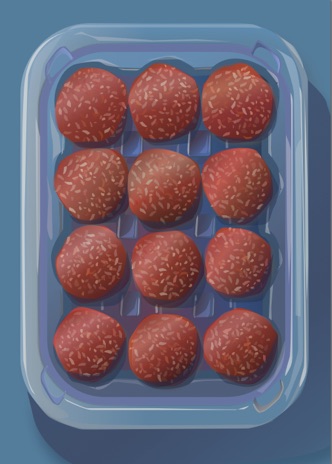Buy a print


EAT LESS MEAT
Michael Mosley in a recent BBC Horizon programme found that ‘nearly a third of the Earth's ice-free land surface is already devoted to raising the animals we either eat or milk and roughly 30% of the crops we grow are fed to animals’.
He reported that ‘The latest UN Food and Agriculture Organisation reports suggest livestock are responsible for 14.5% of man-made greenhouse gas emissions - the same amount produced by all the world's cars, planes, boats and trains. Also meat consumption is predicted to double in the next 40 years as people globally get wealthier.’
‘A single cow can belch up to 500 litres of methane every day. Multiply that by the 1.5 billion cattle we have on our planet and that's a lot of gas. This has a vast environmental impact because methane is 25 times more potent a greenhouse gas than carbon dioxide.
Cows also release the equivalent of 16kg of carbon dioxide for every kilo of meat produced. Sheep are only slightly better making 13kg of CO2 for every kilo whilst pigs create about half as much, and chickens are responsible for only 4.4kg of CO2 per kilo of meat’. He concludes that ‘If you really want to be an environmentally friendly carnivore, your best bet is to stick to less than 100gms of meat per day. That's about half what we currently eat’.
However, the most eco-friendly source of meaty protein Michael encountered was also the lowest tech - mussels. ‘Their carbon footprint is 20 times less than chicken, and fifty times less than beef. They even have the added bonus of capturing carbon dioxide and locking it up in their shells’.
Can eating meat be eco-friendly?
By Dr Michael Mosley
BBC Horizon

I Care
Products











